- Home
- Paul Christopher
Valley of the Templars ts-7 Page 7
Valley of the Templars ts-7 Read online
Page 7
“Give him your coat and hat,” Black said to Major.
“But…,” said Major.
“Do it!”
Major did as he was told. Gripping the doctor by the arm, Black led the frightened man down the narrower southern path away from the fountain. Behind them Black could hear raised voices, at least one of then in Spanish.
“Lo que está pasando?” The doctor asked, getting more upset with each passing second.
“Everything’s going to be fine,” soothed Black. He jerked his head and Major peeled off and headed back toward the fountain.
Hunched over against the pounding rain, Black and Selman-Housein moved quickly down the pathway. It was the Garda Band playing under cover of the bandstand’s conical Victorian roof, the brass buttons on their policemen’s uniforms as shiny as their instruments.
They were playing “Teddy Bear’s Picnic” now, much to the delight of their audience, a giggling flock of young children all dressed in yellow slickers, boots and rain hats, just like the children in the Madeleine books his mother had read to Black as a child.
Far behind them now Black heard the frantic wailing of a police car on the far side of the Green.
“I have changed my mind!” Selman-Housein moaned. “Let me go!” The doctor tried to pull away from him, struggling against Black’s grip, but Black held on ever harder, almost lifting the older man off his feet.
“Too late, amigo,” said Black harshly. “You made your bed and now you’re damn well going to lie in it.”
Four was waiting at the open gate exiting onto the street. Four was a man in his fifties named Tommy Thompson, an ex–SAS Special Forces master sergeant with a face like granite and biceps like steel.
“The doctor’s having pangs of homesickness, Tommy,” said Black.
“Not a problem, sir,” replied the hard-faced sergeant. He gripped Selman-Housein by his other arm and together he and Black propelled the smaller man through the gate and across the rain-soaked road to the opposite side. They piloted the Cuban fifty feet south to the front door of Staunton’s on the Green, two Georgian houses joined to make a small boutique hotel.
They lifted him up the single step, pulled open the door, then marched him straight down the main hallway and out the rear patio exit. They stepped back out into the sheeting rain and followed the narrow brick pathway to a small gate. Holding the doctor firmly, Tommy Thompson lifted the latch and the three men stepped out into Iveagh Gardens.
The Gardens, a smaller version of St. Stephen’s Green, was hidden from sight on three sides by buildings and on the fourth by a high brick wall and a screening stand of trees. The gardens had been a gift from Benjamin Guinness of the beer dynasty and named for his son, Edward, the first Earl of Iveagh.
Empty now because of the downpour, the Gardens had a sinister, brooding look like something from an Alfred Hitchcock movie. Ignoring the feeling of imminent doom creeping down his neck along with the rain, Black pointed the doctor down the path to the only public entrance to the Gardens on Clonmel Street, halfway down the park.
“Listen to me! Listen to me!” Selman-Housein screamed. “I must go back to the hotel! I have left important documents there!”
“Come along, then, Doctor—there’s a good fellow,” said Tommy Thompson. “I wouldn’t like to hurt you, now, would I, sir?”
“Me cago en tus muertos!” Selman-Housein screeched. He turned his head and spit in the sergeant’s face.
“Whatever you say, sir,” Thompson said quietly. He wiped the spit and rain from his face, then slapped the Cuban hard across the back of the head.
Clonmel was less a street than a broad alley between two buildings on Harcourt Street. Reaching the open gates of the park, Black saw that the yellow and red fire brigade ambulance was already in place.
“What is this!” the Cuban said, balking, eyes widening at the sight of the ambulance, its rear doors already open and waiting.
“It’s a fucking trolley bus,” said Tommy Thompson. “What did you expect, an embassy limousine, mate?”
“I will not get in this thing.”
“Oh yes, you bloody will,” said Tommy. He grabbed the little man under the armpits and heaved him headfirst into the rear of the ambulance, following close behind. Black stepped up into the ambulance, as well, and together he and the sergeant managed to get the Cuban strapped down onto the gurney inside.
“Why are you doing this to me?” Selman-Housein moaned beseechingly, his eyes filling with tears.
“Verisimilitude,” said Black.
“Qué?”
“To make it look real,” explained Black, slapping a slab of sticking plaster over the man’s mouth, followed by an oxygen mask. That done, Black rapped on the driver’s partition wall with his knuckles. The siren started and they hurtled up Clonmel to Harcourt Street and began to weave through the streets of Dublin at rush hour in the pouring rain. Twenty minutes later, siren still wailing, they reached the N4 and headed west toward the Lujan Bypass and the countryside beyond. Five minutes later, the siren silent, they turned in at Weston Executive Airport and the waiting, unmarked white Gulfstream 5.
Without removing either the mask or the tape, they got Selman-Housein down off the ambulance and up into the sleek white jet. One of the leather couches had been removed from the rear of the aircraft and the gurney fit perfectly, clipping solidly onto the two U-shaped bolts in the fuselage wall. The door closed with a hiss and the pilot and the copilot began to spool up the Gulfstream’s twin Rolls-Royce engines. A few moments later they taxied out to the runway and then hurtled down it, finally leaping into the air and heading southwest, climbing steadily, finally getting out of the rain and into the fading blue sky beyond. Far to the west the sun was already heading downward into the night.
Black finally took off the mask and ripped off the tape from Selman-Housein’s mouth. “Get me down from here,” snapped the Cuban doctor angrily.
“Not a chance,” answered Black. The thought of listening to the man’s complaints for the next six hours was intolerable. He took out his CO2-powered syringe and recocked the arming lever. He pushed the syringe tip against the bulge of the older man’s fatty love handles and hit the FIRE button. The doctor was unconscious almost instantly. The shot would keep Selman-Housein deep under all the way to Washington. Black smiled. “Render unto Caesar that which is Caesar’s. Render unto Joseph Patchin’s that which is Joseph Patchin’s.”
9
Back at the hotel, Holliday took his National Geographic map of Cuba out of his suitcase and spread it out on one of the beds.
“Show me,” he said quietly. Eddie shook his head.
“Not here,” said the Cuban. He pointed to the French doors leading out to the balcony. Holliday nodded. Eddie opened the doors and Holliday stepped out into the cool evening air.
A table and chairs sat facing out toward the sea and the Malecon far below. The tide was in and people were promenading along the famous seawall, half of them tourists and the rest predatory prostitutes. A breeze was blowing. From the balcony it was a vision of paradise, but Eddie ignored it. He was too busy checking the table and chairs and even the candle lamp in the middle of the table for bugs. He found what he was looking for under the third chair, an old-fashioned radio microphone that belonged in a Cold War museum. Eddie pointed it to it, carefully carried the chair back into the sitting room of the suite and then came back out onto the balcony again, closing the French doors behind him.
“I turned on the radio so the microphone will not be lonely. They are playing an old speech of Fidel’s—it will go on for hours.”
“They really bug hotel rooms?”
“Certainly.” Eddie smiled. “They must give the last few Chinese at Bejucal something to listen to.”
Holliday spread out the map again, anchoring it with the candle lamp. There was enough light from the French doors to see the map clearly. “Show me,” he said again.
Eddie ran a large black forefinger through a gently cu
rving arc in the center of the island. “These are the mountains of Escambray. They run like a spine down the middle of Cuba, not high, but mostly covered with jungle. The roads are still dirt and the only way in or out is in military trucks. This is where the War of the Bandits was fought.”
“War of the Bandits?” Holliday asked.
“It is an old story in Cuba, once taught to schoolchildren, but heard of very little in the United States.”
“So tell me,” said Holliday.
Eddie lit a cigar with his old Zippo, something that Holliday hadn’t seen him do in a very long time. Being back in Cuba and the loss of his brother were clearly taking their toll.
“There are two versions—the bedtime story CIA agents tell their grandchildren and the one Fidel tells. The only one that I know to be true is the one from 1962 in which my brother at fifteen years old fought in the Sierra del Escambray with an old Springfield rifle and almost died.”
“Who was he fighting?”
“The remains of Batista’s army—the truly corrupt one who had so much to lose—control of drugs, prostitution, gambling, other criminals, some right-wing anticommunists and of course the CIA. Fidel spent three years trying to get them out with the regular army, but his losses were too high; fighting in the Sierra del Escambray is like fighting your own shadows, and the Batistanados were better armed—by the CIA.
“Eventually Fidel had a better idea; he gathered together everyone and anyone he could think of—young people especially. He soon had fifteen thousand volunteers. They walked, almost arm in arm, through the jungle like when you search for a lost child, a cordón?”
“Cordon.” Holliday nodded.
“Anyway, like this they enclosed the banditos like fish in a net and then they killed them all. My brother was wounded badly in the leg. He almost lost it and walks with a limp still, and Fidel lost many people, but eventually all the banditos were gone. It took almost three years. By the second year the CIA saw there was no hope, so they withdrew their support.”
“And the Valley of Death?”
“The Sierra del Escambray is divided into two parts, the Sierra Guamuhaya and the Sierra de Sancti Spiritus. Between them flows the Agabama River. This is the Valley of Death.”
“You think this is where he has gone to hide himself?”
“No,” said Eddie. “I don’t think he is hiding; to hide, all you have to do is lose yourself in the favelas of Havana. There are places in those slums and baracoas even the Secret Police will not go. I think perhaps he knows something, maybe too much. I think perhaps he has gone there to find something.”
“So, how do we get there?”
“To go by the motorcycle or even a rented car would attract too much attention.”
“We’re tourists. We can go anywhere.”
“This is Cuba, mi colonel. You cannot go anywhere without a reason, even a tourist. And this is not a place where tourists go.” For a moment Eddie’s eyes settled on the tourists and prostitutes lingering by the sea wall. Then his focus shifted farther out.
“By sea,” said Eddie finally. “We must find a boat.”
“One of my people in Cardinal Ortega’s office in Havana has been in contact,” said Father Thomas Brennan, head of Soladitum Pianum, the Vatican Secret Service. Brennan was in the office of his master, Cardinal secretary of state Antonio Niccolo Spada. The cardinal, every day of his seventy-nine years etched into the lines on his face and every glass of Bardolino he’d ever sipped visible in the blown veins of his hooked and shiny nose, looked up at the disheveled Irish priest and frowned.
“His Eminence Jaime Cardinal Ortega is an unrepentant finocchio and even the pope knows it,” said Spada. “What does his bum boy have to tell us—that Fidel has finally confessed his sins?” He coughed dramatically and waved his hand at the cloud of smoke from Brennan’s fuming cigarette, the ashes of which were all over the front of the priest’s wrinkled black collarino shirt. Brennan was standing at the ornate Italian Renaissance–style oak carved console table that served as Cardinal Spada’s bar.
“No, but someone else did.”
“Don’t keep me in suspense, Brennan. The longer our conversation goes on, the longer I have to endure the foul stench of your cigarette.”
“A sin that has haunted me since I was eight and my da gave me enough money to buy a five-pack of Gallaghers. We all have our burdens, I’m afraid.” The priest toyed with the cut-crystal stopper of a decanter of sherry on the bar for a moment.
“Get on with it,” snapped the cardinal. If the testa di merda wasn’t so valuable, he would have had the little Irish bastardo snuffed out like a votive candle in the Sistine Chapel.
“It was some time ago in the cathedral. According to the priest, the man had been drinking and was clearly very upset. He was incoherent about most things, but the priest was able to pick up one or two things of interest. The words Valle des Muertes, the Valley of Death, and Operación de Venganza. The priest eventually reported it to me.”
“Why in the name of all that is holy would we be interested in the ravings of a drunk Cuban in his cups muttering tales of death and revenge? It sounds like one of those dreadful romanzos His Holiness likes to read before he goes to sleep.”
“The priest knew the man. His name was Domingo Cabrera and he works for the Cuban Department of the Interior—their DGI, the Secret Police.”
“Cabrera,” said Spada, frowning. He took off his glasses and pinched the bridge of his nose with a thumb and forefinger. “Why do I know that name?”
Brennan whisked some ash off the front of his shirt and down onto the seventeenth-century Anatolian Lotto rug that covered the cardinal’s floor. “Because he is a close companion of Colonel John Holliday, whose path has crossed ours on several occasions. He cost us Pesek, the assassin, last winter and we lost any chance of ever finding the Book because of his antics in the Kremlin. He cost us Harris in Africa the year before that and he also knows far too much about the death of the present Holy Father’s predecessor and our possible involvement in that ‘arrangement.’”
Spada laid his hands flat on the table. The liver-colored age spots were everywhere now and the veins stood out like thick wormlike cables. The skin was so thin it looked like parchment, and unless he concentrated he could no longer stop the faint, tremulous shaking. It was the very earliest stage of Parkinson’s disease, but according to the doctors, at his age the symptoms, especially the cognitive ones, would progress rapidly. He sometimes wondered why he cared so much about living and had finally concluded that it was because he was so terrified of what faced him, or did not face him, after death. He frowned. Best not to think of such things.
Carrie Pilkington had done the New York Times crossword puzzle that morning in six minutes and fifteen seconds. Forty-five seconds longer than the all-time world’s record but pretty good all the same, especially for a twenty-seven-year-old, fresh out of Harvard with a postgraduate degree in ethnomusicology, making her the youngest doctor of anything in the Central Intelligence Agency.
She still wasn’t sure quite how or why she’d been recruited by the Company except that a mysterious man smoking a pipe had approached her at the American Crossword Puzzle Tournament two years ago shortly after she’d taken second place. He’d asked her if the Harvard sweatshirt was real and when she said yes he’d given her his card and wandered away into the crowd, never to be seen again.
Initially she’d gone to the recruiting seminar simply out of curiosity, but after she’d listened to the speech and gotten the booklet describing pay grades and benefits, it occurred to her that her doctorate in ethnomusicology wouldn’t give her that kind of package in a university for years and it was also beginning to look as though her best bet for employment these days was probably going to be more on the level of high school band teacher somewhere in Missouri.
She applied, was accepted and went through an orientation course that did not involve guns, knives or twenty different ways to kill someone with a soupspoon
. Now here she was, manning the Netherlands desk after Bert Coptic’s unfortunate and unforeseen massive coronary “event” that left his wife to collect his pension and about three dozen hidden Snickers bar wrappers in his bottom drawer.
The Netherlands desk was hardly the beating heart of intelligence in the agency and was just about as low as you could get on the hierarchical bureaucratic ladder, but Carrie didn’t mind; over her six months on the desk she’d noticed that Holland, and Amsterdam-Rotterdam in particular, was something of a minor crossroads in the game, like the intersection of a “Down” and an “Across” clue in a puzzle. And there was nothing Carrie Pilkington liked better than a puzzle except for that singular moment when all the pieces fit together to form a complete picture.
As intelligence analysis went, the young Miss Pilkington’s methods were seen as a little odd by most of her colleagues in the Western European Section on the third floor of the aging building in MacLean, Virginia. Carrie’s clues were gathered one by one and written cryptically on yellow Post-its in her own personal code and then stuck up on the gray metal wall of her cubicle. While other analysts pored over computers, flipped through dossiers and clipped newspapers, Carrie gathered Post-its and stared until she had enough of the little yellow squares to give her the picture on the cover of the box.
Like now.
An NSA intercept from Ramstein Air Force Base.
A car rental from Kaiserslautern, the closest town to Ramstein AFB.
A Dutch employee of the Canadian consulate in Amsterdam accused of selling passport blanks to a known document forger.
A tap on the phone line of a Dutch lawyer who was under suspicion of being a double agent.
The murder of the same known document forger as the one implicated in the case of the consulate employee.
The name and telephone number of the owner of a well-known expatriate bar found in the iPhone directory of the forger.

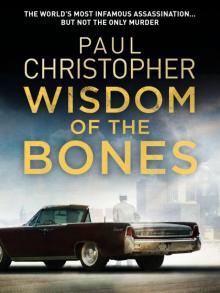 Wisdom of the Bones
Wisdom of the Bones The House of Special Purpose
The House of Special Purpose The Second Assassin
The Second Assassin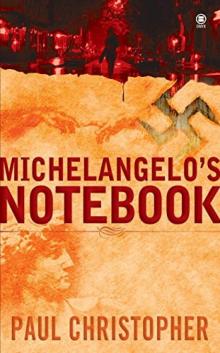 Michelangelo's Notebook
Michelangelo's Notebook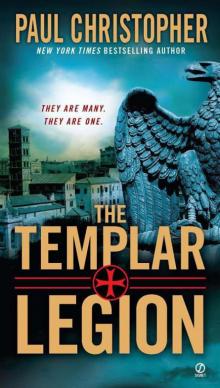 Templar Legion
Templar Legion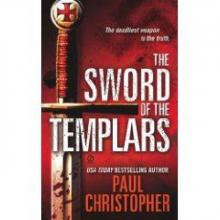 The Sword of the Templars t-1
The Sword of the Templars t-1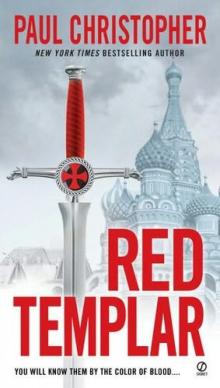 Red Templar
Red Templar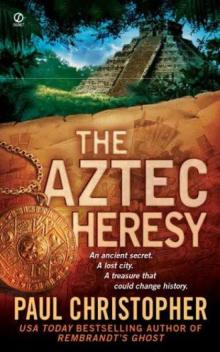 The Aztec Heresy
The Aztec Heresy The Templar Legion
The Templar Legion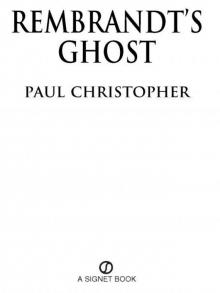 Rembrandt's Ghost
Rembrandt's Ghost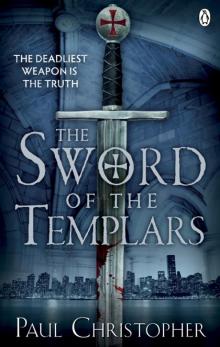 Sword of the Templars
Sword of the Templars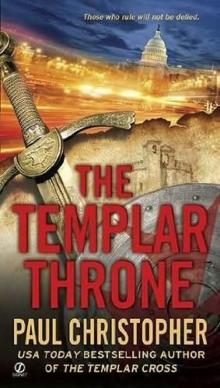 The Templar throne t-3
The Templar throne t-3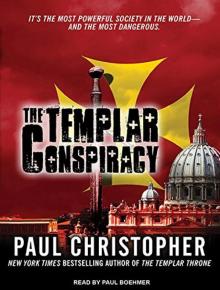 The Templar Conspiracy
The Templar Conspiracy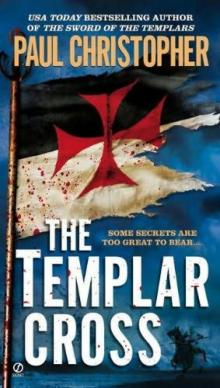 The Templar Cross t-2
The Templar Cross t-2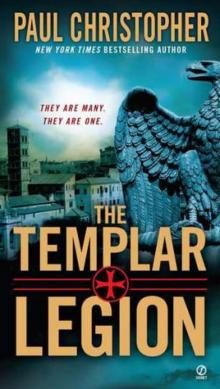 The Templar Legion t-5
The Templar Legion t-5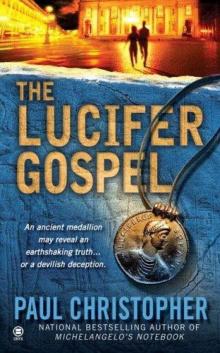 The Lucifer Gospel
The Lucifer Gospel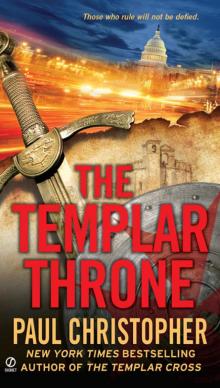 Templar Throne
Templar Throne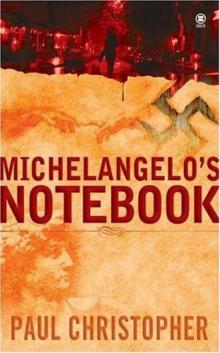 Michelangelo_s Notebook fr-1
Michelangelo_s Notebook fr-1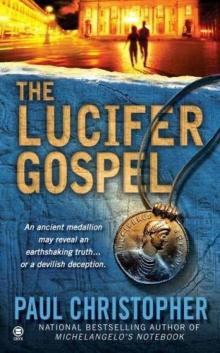 The Lucifer Gospel fr-2
The Lucifer Gospel fr-2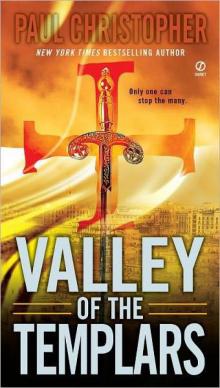 Valley of the Templars ts-7
Valley of the Templars ts-7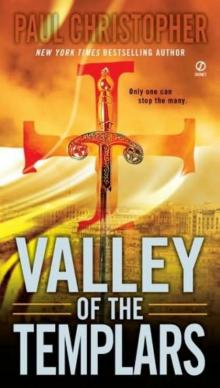 Valley of the Templars
Valley of the Templars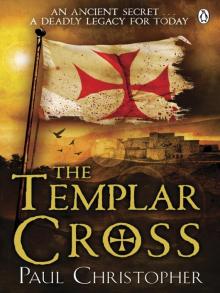 Templar Cross
Templar Cross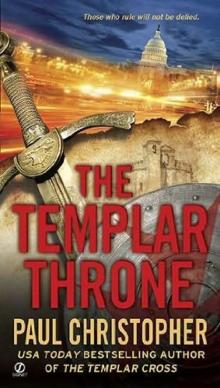 The Templar Throne
The Templar Throne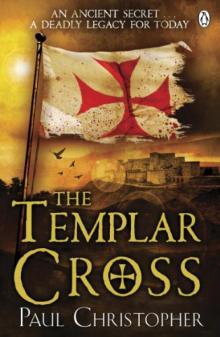 The Templar Cross
The Templar Cross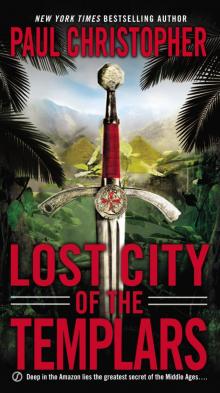 Lost City of the Templars
Lost City of the Templars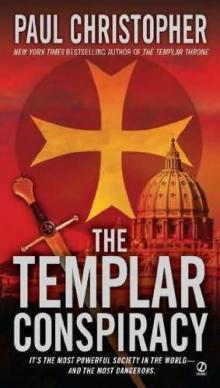 The Templar conspiracy t-4
The Templar conspiracy t-4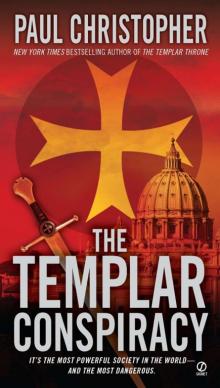 Templar Conspiracy
Templar Conspiracy